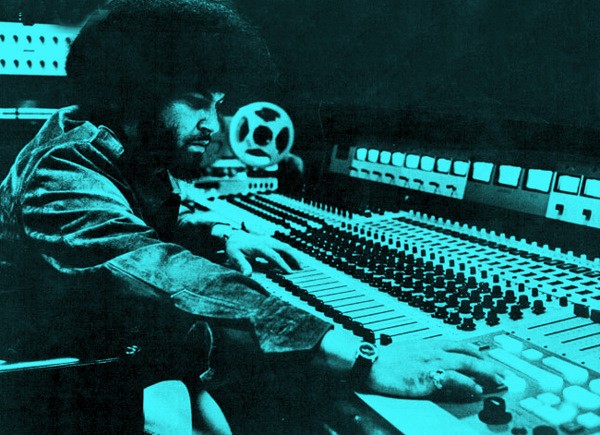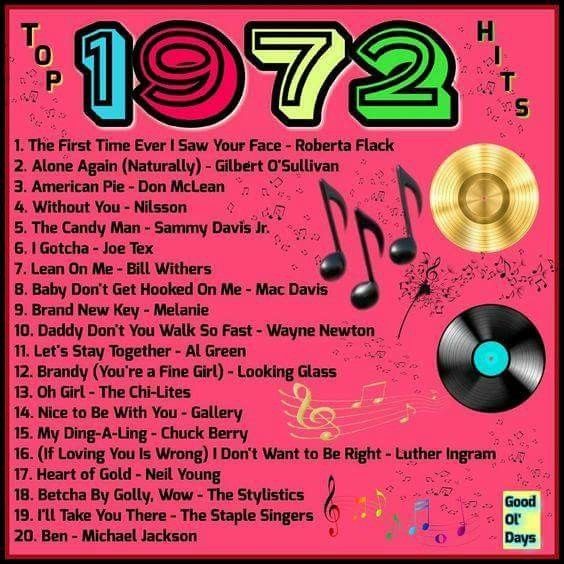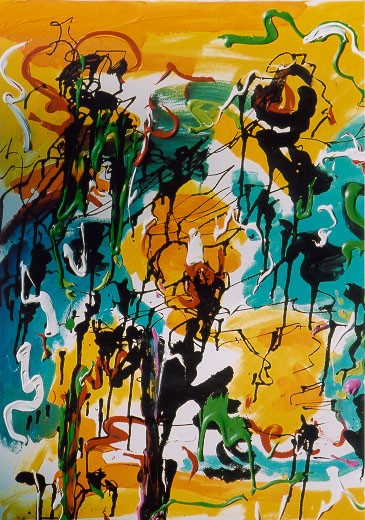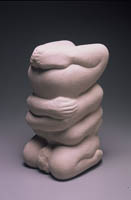1972 Gave Us the Greatest Soul Song Ever, the Temptations’ ‘Papa Was a Rollin’ Stone’
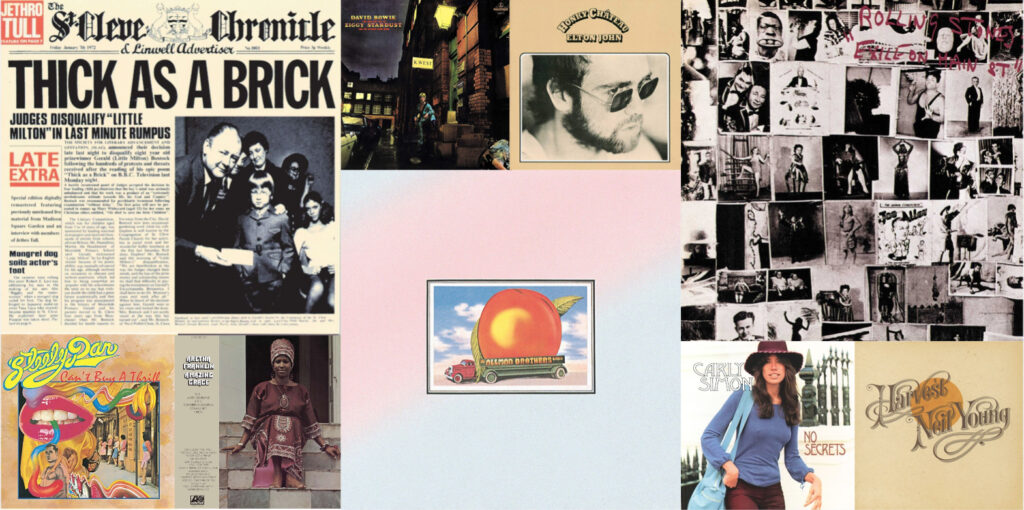
That year in rock was kind to the great Chuck Berry, who scored his first and only #1 hit with an infantile sing-along titled ‘My Ding-A-Ling.’
It was 50 Years Ago Today
The year 1972 marked the continuation of rock ‘n’ roll (rock, soft rock, hard rock, classic rock) as being the dominant genre in popular music that began in the 1960s. The passing of the decade (’60s-’70s) is irrelevant here. For those interested in milestones, the 1970s saw a major shift mid-decade with the emergence of punk and disco (read about that here).
Aside from the Chuck Berry frivolity, several rock performers established themselves and found success in 1972. Eagles landed with the massively popular “Take It Easy.” Neil Young flaunted his solo chops in “Heart of Gold.” So did Michael Jackson with his second solo, “Rockin’ Robin.” Stevie Wonder alerted us that the best was yet to come with his #1 hit, “Superstition.”
Carly Simon’s “You’re So Vain” got tongues wagging about who it was really about. Mick Jagger, who sang on the chorus, was the people’s choice, but the demur Carly only said that it wasn’t about James Taylor, whom she married just as the song charted #1.
Other notables: Roberta Flack’s Grammy-swept “The First Time Ever I Saw Your Face,” The Rolling Stones’ Exiled “Tumbling Dice,” David Bowie with “The Jean Genie,” and Bowie chum Lou Reed, who somehow fooled the censors with his “Walk On The Wild Side.”
The Temptations
During the early years of the Temptations’ reign as one of Motown’s biggest acts, the band was mentored by Smokey Robinson, who wrote some of their early 1960s songs (e.g. “My Girl”). Around 1966, with Berry Gordy’s blessings, Norman Whitfield came on the scene as the Temptations’ main producer and songwriter. Whitfield brought with him lyricist Barrett Strong.
The arrangement worked out very well. The Temptations churned out hit after hit, mostly with David Ruffin as lead singer. These were the days of “I Wish It Would Rain,” “All I Need,” “(I Know) I’m Losing You,” and “You’re My Everything.” All went to the top of the charts.
Psychedelic Soul
On June 27, 1968, David Ruffin was fired from the Temptations for using drugs, skipping engagements, and making demands such as: If the Supremes are now called Diana Ross & the Supremes, why can’t this band be named David Ruffin and the Temptations? This was a non-starter for Gordy and band members, and so Dennis Edwards became a Temptation.
Edwards became an enthusiastic enabler of Whitfield’s transformation to a finger-to-the-wind “funkier” sound for the band, with Strong’s increasingly socially aware lyrics. Psychedelic Soul became a thing as the Temptations unveiled “Cloud Nine” in October 1968, a radical departure from David Ruffin’s ballads. “Ball of Confusion (That’s What the World Is Today)” and “Psychedelic Shack” soon followed.
Barrett & Strong
“Papa Was a Rollin’ Stone” was originally a three-minute song written for a Motown band called The Undisputed Truth that was released as a single in May 1972. A few months later, Whitfield reworked the song into a 12-minute instrumental track for the Temptations.
Barrett Stong recalled for the Wall Street Journal how they put the song together:
In mid-1971, Norman Whitfield called me at home…He had a groove he wanted me to hear that needed lyrics. Norman said he wanted lyrics that were fun…But as I listened over and over after Norman left, I didn’t hear the music the way he did. There was something about the bass line that spoke to me. It was the sound of someone confused about something and was trying to make sense of it.
Barrett Strong
Papa Was a Rollin’ Stone
Temptations founding member Otis Williams remembered, “To be truthful, we almost didn’t record the song.” It seemed that the fiery Dennis Edwards, who was chosen to be the lead singer, objected to the first four lines of the song:
It was the third of September
that day I’ll always remember
’cause that was the day
my daddy died.
Williams claimed that his own father died on that date. But then Williams reached into his memory bank and remembered that his minister dad (hardly a “rolling stone”) died on October 3. Game on.
What a song…a real magnum opus for an iconic band. With an instrumental introduction of 3:53 in length, Barrett’s and Strong’s vision was trimmed to 6:54 for radio play. The B-side album instrumental weighed in at just over 12 minutes. It could have been a catalyst for Donna Summer’s 14-minute “Love to Love You Baby” in 1975 that shredded the norms for song length.
Here is a strictly audio version of “Papa Was a Rollin’ Stone,” the single version on video, published by Will Common via YouTube:
Numerous Honors
“Papa” went to #1 on Billboard’s Hot 100. It was the Temptations’ final #1 pop hit. It was the last big hit recorded in Motown’s famed Studio A in Detroit. Most of the Motown stable was already recording in Los Angeles, but Berry Gordy permitted the Temptations one last hurrah in the Motor City.
The song won three Grammy awards in the 1973 ceremony: The A-side was awarded Best R&B Vocal Performance by a Group. The B-side won a Grammy for Best R&B Instrumental. Norman Whitfield and Barrett Strong captured Best R&B Song as the composers.
In a 1995 interview with Goldmine magazine, Berry Gordy said of Whitfield: “Now that I have time to listen to [his songs], I’m saying, Wow! This guy was probably the most underrated producer we had!”

